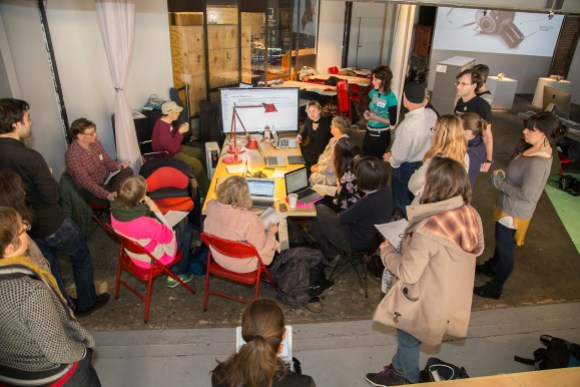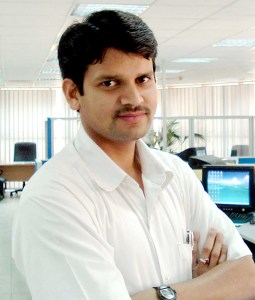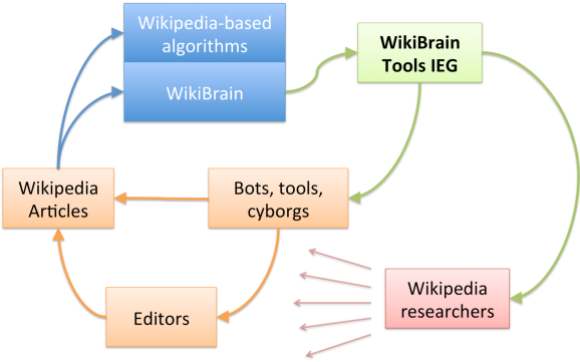
“ArtAndFeminismNYC-training1” by Michael Mandiberg, under CC BY-SA 3.0
Today we’re announcing round two of Wikimedia’s 2014 Individual Engagement Grantees.
Individual Engagement Grants (IEG) provide funding to individuals and small teams to take on projects that will have online impact and advance Wikimedia’s strategic priorities. These projects can take on many forms, from building and improving online tools or social processes, to creating new types of partnerships with GLAM organizations or conducting actionable research about Wikimedia content and contributors.
The IEG committee scores two rounds of grant proposals a year according to specified selection criteria. Our volunteer committee is made up of 16 Wikimedians who come from various home wikis and collectively speak 15 languages. Outside of their committee work, members edit, review, and translate content, help govern local chapters, write software, organize off-wiki events and facilitate workshops, work as sysops and bureaucrats, verify copyright and licensing permissions, draft and discuss project policies, and recruit and welcome new users to Wikimedia projects.
In this latest round, a total of 26 eligible proposals were submitted for the committee’s review. We recommended seven projects be funded in total, with 13 grantees selected to receive $98,271 overall.
The projects selected for funding this round are:
- Art+Feminism Editathon training materials and network building: This project will build on a series of successful 2014 edit-a-thons to develop scalable online infrastructure, including training materials and a network of facilitators, to support the expansion and sustainability of the Art+Feminism movement, aimed at improving Wikipedia’s coverage of notable women in history, art, and beyond.
- Automated Notability Detection: This project aims to develop a classification algorithm that can assess likeliness of notability (initially within English Wikipedia) and can be used to support editors’ review of newly created articles.

“Viswanadh,B.K”by విశ్వనాధ్.బి.కె., under CC BY-SA 3.0
- Digitization of Important Libraries Book Catalog in Andhra Pradesh and Telangana: Through a partnership between the Telugu Wikipedia community and brick-and-mortar libraries in India, this project will endeavour to digitize five library catalogues of Telugu books in order to support Telugu Wikipedians searching for verifiable sources for new article content.
- Fundación Joaquín Díaz: This project will see 23,000 sound recordings from the ethnographic archive of the Joaquín Díaz Foundation in Urueña, Spain uploaded to Wikimedia Commons under a free license, and could serve as a potential model for other institutional collaborations.
- Revision scoring as a service: The grantees of this project will develop machine classification for assessing quality of contributions on multiple language Wikipedias as a publicly queryable API. This service will in turn support the development of new and powerful tools to support editors beyond the English language Wikipedia environment.

“WikiBrainIEG”by Shilad, under CC BY-SA 4.0
- WikiBrainTools: This project seeks to democratize access to Wikipedia-based algorithms across all Wikipedias, and allow Wikimedians to leverage the work of natural language processing researchers to build smarter tools for Wikipedia. In particular, WikiBrainTools will attempt to close the loop between algorithmic researchers who mine Wikipedia to improve computer-derived insight, Wikipedia developers who could be integrating algorithms into their bots and tools, and Wikipedia researchers who could stand to benefit from tools that improve pattern recognition.
- WikiProject X: This project will explore and test design solutions for encouraging optimal effectiveness and supporting sustainability and collaboration between groups of contributors within a WikiProject on English Wikipedia.
- Additionally, one project funded in the last IEG round, Women Scientists Workshop Development, was also approved by WMF for another 6 months of renewed funding to experiment with scaling the model.
Some of the proposals declined by the committee were ultimately seen as being more appropriate candidates for a PEG (Project and Event Grant), which typically funds offline events and outreach; others outlined innovative approaches to solving a problem but appeared too early in their ideation to be realistically executed, were of unclear direct benefit to Wikimedia projects, or did not adequately engage with the target Wikimedia communities they aimed to serve. As some of these proposals continue to develop in response to feedback, they’ll be welcome to return to IEG in future rounds – we love to see ideas grow and change as a result of the community discussion process.
With so many new ideas put forward in this round, we’re seeing a few emerging trends. Just over half (13) of this round’s proposals fell under the “Tools” category, nine fell under “Offline Outreach & Partnerships”, two fell under “Online Community Organizing”, and one fell under “Research.” Many submissions touched upon the idea of micro-edits in one way or another. Using machine learning to assist human decision-making was another common theme, and we’re pleased to see an increasing number of academic researchers proposing new ways to integrate their research into actionable Wikimedia tools and processes. There appears to be an increasing trend towards developing tools through IEG: the number of tools proposals nearly doubled since IEG’s last funding round. Online tools offer the potential for a small team to help many editors and readers, and we’re curious to see what impact this will have over time. We’re grateful for the many volunteers and WMF staff members who offered the committee expert opinions on these tools proposals in particular, as well as all proposals under consideration.
IEG is a participatory and iterative grantmaking process. Committee members, as well as the broader Wikimedia community, are encouraged to read over grant proposals and leave comments and questions on proposal talk pages in advance of the formal review process. The back-and-forth between applicants, staff and the committee often results in stronger submissions and helps applicants, many of whom have no prior grant-writing experience, compete effectively for funding. Many committee members also serve as advisors for funded projects between funding rounds.
The IEG committee notes that 3 of 7 grants in this round are targeting English Wikipedia, which makes some sense given the large number of readers and contributors to that project. With so many Wikimedia language projects and potential grantees around the world to support, though, we welcome discussion about how the program can increase the diversity of the proposals it receives. We also look forward to reviewing your future submissions – hope to see you in IdeaLab in 2015, as the next round of IEG develops. For now, though, we say congratulations to the successful grantees and encourage you to follow their progress as they begin work in the coming weeks.
Helen Halbert (User:Thepwnco), on behalf of the IEG Committee

Can you help us translate this article?
In order for this article to reach as many people as possible we would like your help. Can you translate this article to get the message out?
Start translation